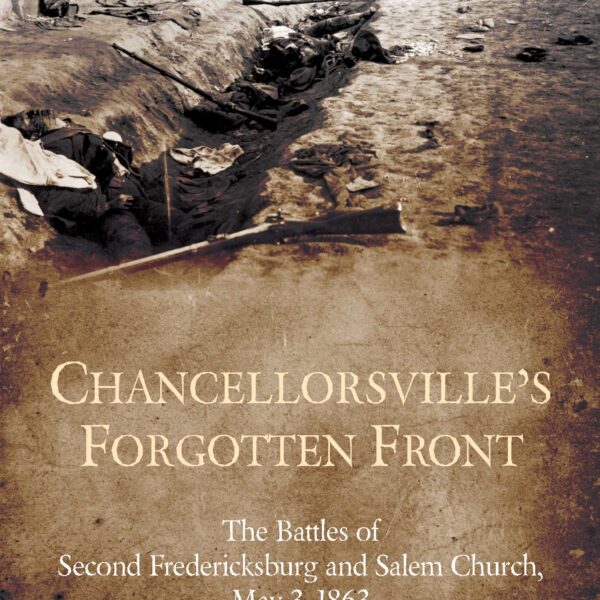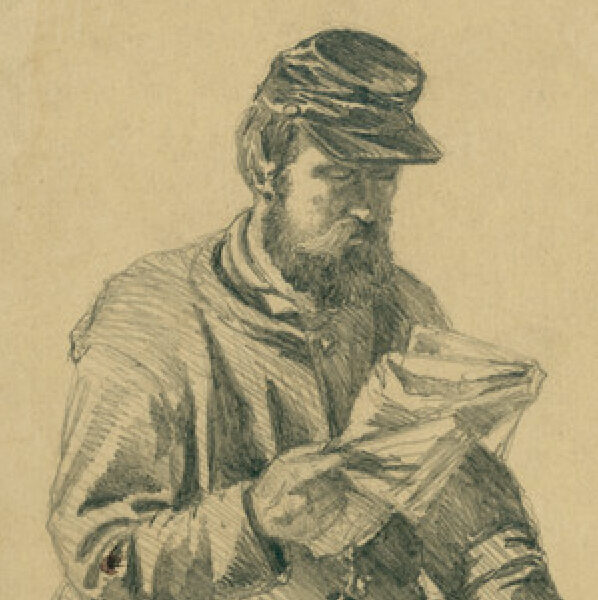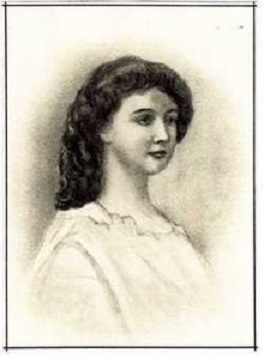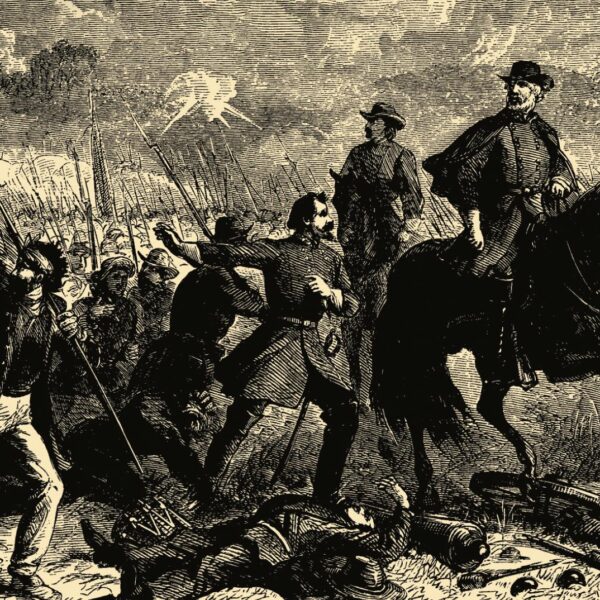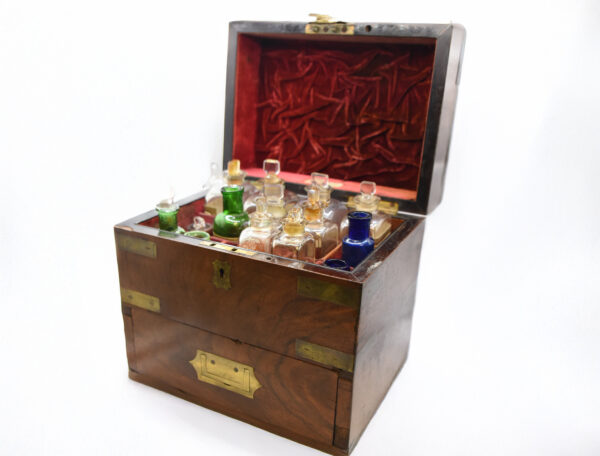 National Museum of Civil War Medicine, Accession# 2023.006.001a
National Museum of Civil War Medicine, Accession# 2023.006.001aMedicine chest that belonged to Confederate Surgeon Christopher H. Tebault. Purchased and donated to the museum by collector Alan West.
Christopher Hamilton Tebault distinguished himself as an eminent physician during the Civil War and in 1862 was a surgeon in the 10th South Carolina Infantry. Civil War artifact collector Alan West believes the walnut medicine chest pictured above was presented to Tebault to celebrate his position, perhaps by his father, Major Edward Tebault. The top of the box (not shown) is adorned with a Confederate flag motif and a brass plate on which Christopher Tebault’s name, position, and regiment are engraved.
The unique chest, which West found in a Connecticut antique shop, includes several original medicine bottles, some with labels of Thomas Roper, a 19th-century chemist who practiced in England. Bottles for popular treatments of the time include quinine, lead, opium, chloroform, and licorice powder.
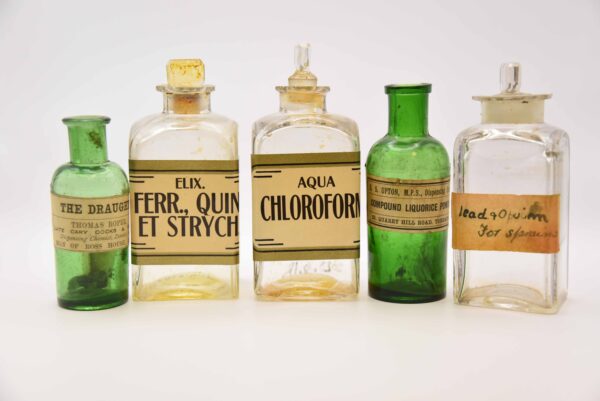 National Museum of Civil War Medicine
National Museum of Civil War MedicineBottles from Dr. Christopher H. Tebault’s wartime medicine chest.
The intriguing artifact sparked a 22-year quest by West for information about Dr. Tebault and eventually led to his writing and publishing a biography, Christopher H. Tebault, Surgeon to the Confederacy. West donated the chest to the National Museum of Civil War Medicine in Frederick, Maryland.
After the war, Tebault was nominated surgeon general of the United Confederate Veterans, a position from which he compiled a history of Confederate medicine, advocated for veterans, and contributed to southern literature. West’s biography covers Tebault’s medical education in New Orleans and his innovative approaches to treating wounds and illness. It also addresses Tebault’s complicated views of the Lost Cause myth and Reconstruction, topics historians and the museum still grapple with, and on which the proverbial history book (or box) is never fully closed.
Melissa A. Winn is director of marketing and communications at the National Museum of Civil War Medicine.
Related topics: medical care

